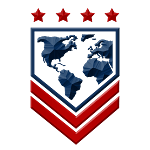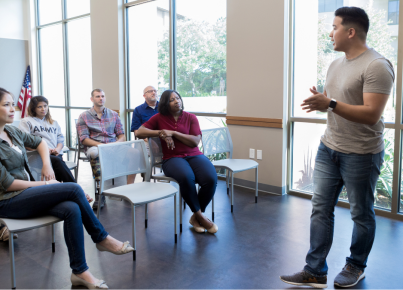One of the greatest challenges veterans face is the transition from military to civilian life. Although there are many programs designed to make this transition easier, we still read failure stories and struggles in the news. That’s why, as a veteran, I have decided to share my tips and best practices with you.
First of all, we should all admit that starting a new life is not easy. There are certain challenges of adjusting to new routines, finding a new job, and changing careers. On the other hand, in the military we learn many skills that are easily transferable to many jobs. Planning and programming, leadership and management, complex problem solving, risk and crisis management, teamwork, training and development are just a few examples. These skills act like a parachute, even when you feel like you’re falling off a cliff.
The first step is putting together your resume. When I compiled my resume for my first application after twenty-four years of service, I was completely amazed at the amount of experience and skills I had learned in the Navy. At first, I was thinking about what to put on my resume but I easily had three pages ready. For this reason, I strongly recommend you to start writing down your accomplishments, skills and experiences and you will actually see how much you take away from military life. This helps to gain confidence and increase your motivation to apply all your insights and learn to start something new.
The second step is deciding on your new career path. The possibilities are endless and please make sure to choose something that makes you genuinely happy and motivates you. That’s why it’s important to take some time to talk to friends, read articles about the industry or company you want to be a part of. Once you have made the decision, it would be easy for you to prepare for the interview. I recommend taking some time to understand the requirements of the position you are applying for. It is important that your CV matches the job requirements. If the job requires specific certifications or skills that you don’t have, don’t be discouraged. You can easily find many online courses and training on almost any subject.
The following step is to apply for the job and prepare for the interview. Every company has its own interview questions or style, but they all have the same goal. They all look for the right match for the job. It is therefore important to understand the requirements and relate your previous experience to the position. So list your accomplishments and projects to prepare for interview questions. It’s also important to structure your thoughts and story. The STAR method (Situation, Task, Action, Result) can be a great way to tell your story. I also recommend you not to use too many adjectives, but to use numbers and data. There is no need to go into the details of how to prepare for an interview as there are many videos. But I highly recommend being confident, positive and focused during the interview. Finally, don’t forget the importance of body language, including eye contact, smiling, and gestures. Your body language should not distract the interviewer.
Assuming you had a great interview and got the job offer, the next step would be to celebrate the moment. Don’t rush into starting to work, take a short trip, relax, digest the news, plan your new life and prepare your family. I remember one of my friends asked me for my recommendation to prepare for his new role. I told him that during onboarding you will have time to learn company or job-specific things. Now just enjoy this great moment. This will also help your family to prepare for the next journey in life.
When you finally start your new role for Transition from Military to Civilian Life, please focus not only on the technical aspect of your job, but also on the culture and the people. It’s important to transfer your skills, but just as important to embrace the new culture. I’ve seen some of my veteran colleagues pretend they’re still in the military. Unfortunately, they failed because they didn’t pay attention to the company’s culture and expectations. As you are learning the business and role, building trust relationships with people, and embracing the culture, you will definitely find excitement in your new career. You will also find how much you have learned in your military service.







You must be logged in to post a comment.